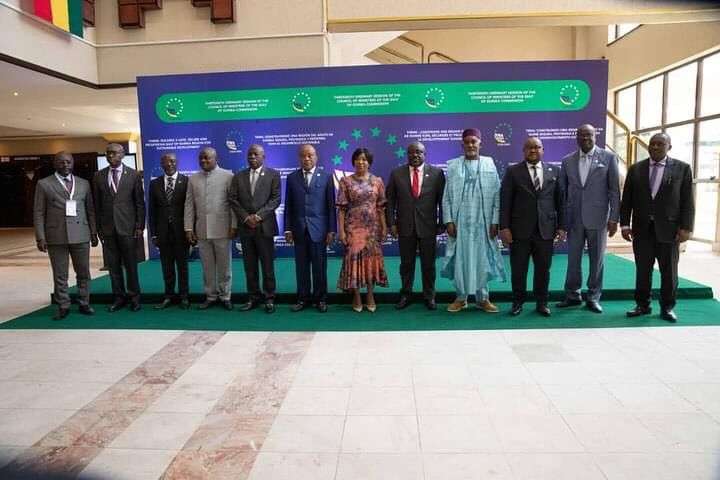In a bold call to action, President Nana Addo Dankwa Akufo-Addo, currently serving as the Chairperson of the Gulf of Guinea Commission (GGC), has called for a fundamental reassessment of the organization’s operations over the past 23 years.
President Akufo-Addo’s call comes amid growing concerns about the effective utilization of the region’s vast maritime resources, ensuring security, fostering a sustainable blue economy, and enhancing regional stability.
President Akufo-Addo emphasized that the commission must be revitalized to meet the current geopolitical realities of the region.
“A rejuvenated Commission is essential to our collective pursuit of peace, security, and stability in our respective countries,” President Akufo-Addo stated. His words underscored the importance of aligning the GGC’s efforts with the evolving challenges and opportunities within the Gulf of Guinea.
While acknowledging the promising outcomes of initial revitalization efforts, the President pointed out that the commission still falls short of its goals. The persistent threats to security and resources in the Gulf of Guinea necessitate a more robust and coordinated response.
To this end, President Akufo-Addo called for enhanced cooperation and information sharing among the nations bordering the Gulf.
“No single country can address independently the multiplicity of evolving maritime threats within their territorial waters,” he stressed, advocating for collective action.
As the current chair of the GGC, President Akufo-Addo proposed a significant expansion of the commission’s mandate. He suggested amending the Commission’s Treaty to include all coastal states from Cape Verde to Angola.
This expansion, he argued, would create a more comprehensive and effective framework for addressing the region’s maritime challenges.
The President also urged countries that had previously expressed interest in joining the bloc to follow through on their commitments.
“It is incumbent upon us to make the organization more attractive, relevant, and capable of meeting the expectations of the prospective Member States.”
President Nana Addo Dankwa Akufo-Addo
Through advocacy, activities, and programs, the commission can demonstrate its potential and capabilities, making it a more appealing prospect for new members.
Financial Sustainability and Technological Integration

A critical aspect of President Akufo-Addo’s vision for the GGC involves securing sustainable funding. He highlighted the unsustainable nature of total dependence on member states’ contributions, given the commission’s expanding mandate.
“Identify alternative sources of funding for the organization,” President Akufo-Addo urged the Executive Secretariat, emphasizing the need for financial innovation.
In addition to financial sustainability, President Akufo-Addo stressed the importance of leveraging technology to transform the GGC’s operations.
“In this age of technology, we witness rapid transformations in all aspects of our lives. It is no longer prudent to be fixated on old ways of doing things.”
President Nana Addo Dankwa Akufo-Addo
By embracing technological advancements, the commission can enhance its relevance, dynamism, and appeal, ultimately improving the fortunes of the Gulf of Guinea region.
The session, themed “Building a Secure and Prosperous Gulf of Guinea Region for Sustainable Development,” aimed to assess the GGC’s work and propose measures for enhancing cooperation among member states.
The goal is to transform the sub-region into a zone of peace, security, and sustainable development. President Akufo-Addo’s call to action is a pivotal moment for the commission, signaling the need for strategic reforms and a renewed commitment to collective progress.
As the GGC embarks on this journey of self-reassessment and reform, the international community watches closely. The success of these efforts will not only impact the immediate welfare of the Gulf of Guinea region but also set a precedent for other regional bodies seeking to navigate the complexities of global maritime governance in the 21st century.
READ ALSO: Tullow Oil Reports Higher Profit for First Half of 2024




















